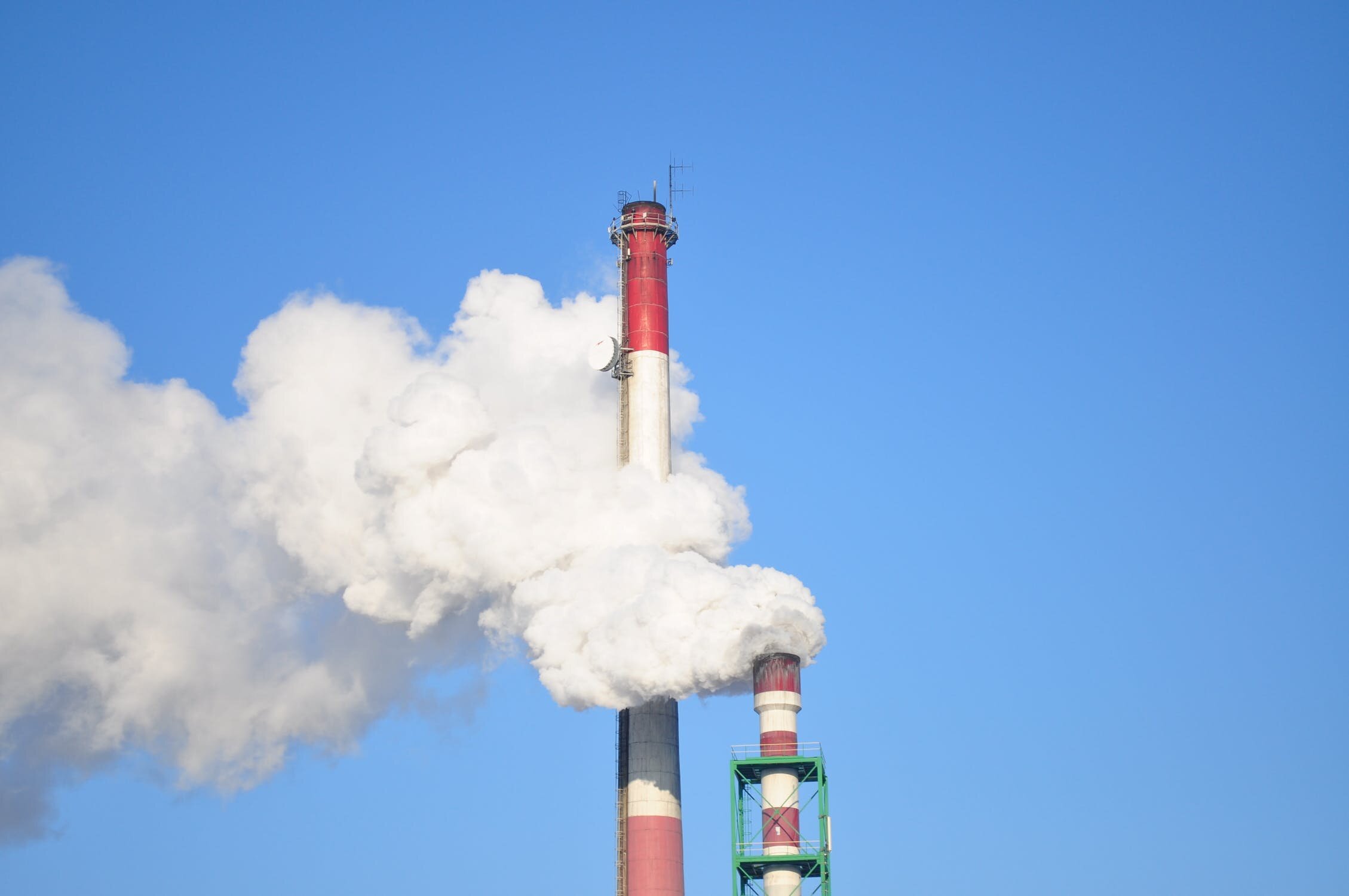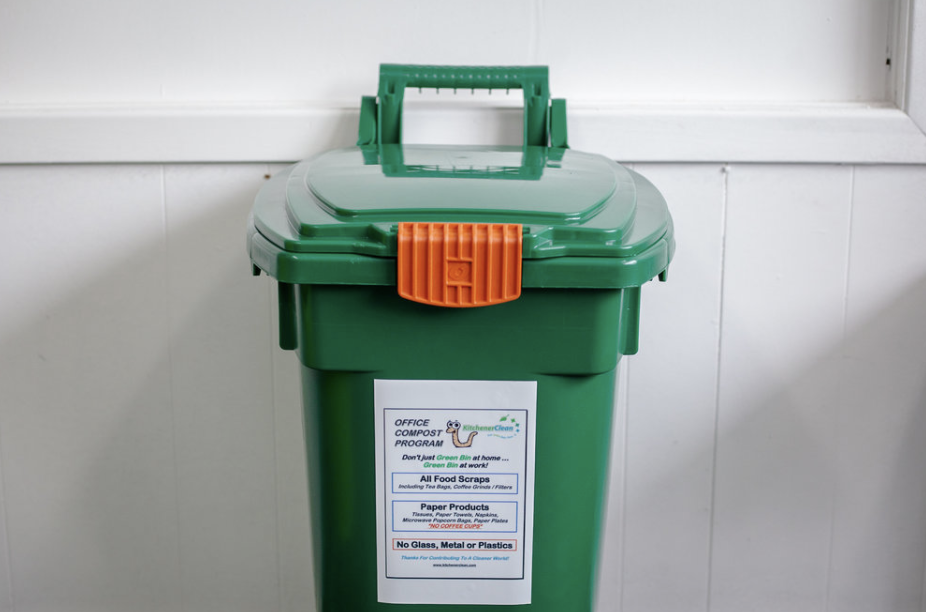Climate Change Definition:
“Climate change is a long-term shift in global or regional climate patterns. Often climate change refers specifically to the rise in global temperatures from the mid 20th century to present.” - National Geographic Encyclopedia
Today, we’ll take a look at the climate change definition and why it’s important for us to understand it better.
At the Office Compost Program, we are dedicated to working towards a cleaner, greener earth, and want to share what we’ve learned with you.
Here, you will learn more about climate change, what exactly it means when people talk about it, and why both individuals and businesses should care. Let’s get started!
The Climate Change Definition
Many organizations have come up with a climate change definition, and although the wording differs, they all point towards the same idea: climate change is a long-term change in the weather patterns in a place (regional changes) and a long-term change in the earth’s climate (global changes).
When looking at the definition of climate change, it’s important to differentiate between “weather” and “climate.”
The National Snow & Ice Data Center provides definitions for both.
Weather and climate are related, but they are not the same thing
Weather - Definition
“Weather is the day-to-day state of the atmosphere, and its short-term variation in minutes to weeks. People generally think of weather as the combination of temperature, humidity, precipitation, cloudiness, visibility, and wind.”
Climate - Definition
“Climate is the weather of a place averaged over a period of time, often 30 years. Climate information includes the statistical weather information that tells us about the normal weather, as well as the range of weather extremes for a location.”
Climate change impacts the average weather that a place typically experiences. For example, some areas may experience more or less rain than they used to due to climate change.
Although climate change and “global warming” are often used interchangeably, climate change and global warming are two different things! According to NASA:
Global Warming - “the increase in Earth’s average surface temperature due to rising levels of greenhouse gases.”
Climate Change - “a long-term change in the Earth’s climate, or of a region on Earth.”
Although the global temperates are rising and the climate is changing, individual areas may actually experience colder weather, more snow than usual, etc.
It’s important to remember that colder weather does not mean that climate change isn’t happening or isn’t serious!
Climate change has major impacts on the entire earth’s climate. According to NASA, over the last 100 years, the earth’s temperature has gone up by 1 degree (Fahrenheit).
Although that might not seem like a lot, even a single degree can have a major impact on weather patterns, ocean levels (due to melting ice), ecosystems, and more. Unfortunately, we are already seeing the impacts of global climate change.
Many cities across Canada have declared a climate crisis, and recently, 11,000 scientists across the world signed a declaration of climate emergency. You can learn more about it in the video below from CBC News.
Learn more about the declaration of climate emergency
We are already facing some of the consequences of climate change. From The David Suzuki Foundation:
“The debate is over about whether or not climate change is real; it is already having a significant impact on ecosystems, economies and communities. It is now time to act to solve the problem.”
Fortunately, there are things that everyone can do. One of the best places to start is actually in the workplace.
Why does climate change matter to my business?
Businesses are often a major leader when it comes to local and even global change. Companies impact what people purchase and how people use everyday items.
Businesses are also a major contributor to waste in Canada. In 2016, it was recorded that the Industrial, Commercial, and Institutional (IC&I) or non-residential sector generated 14.7 million tonnes of all waste disposed of - that’s 59% of waste that year!
That means businesses alone contributed to more than half of all waste disposed of in Canada in 2016.
So - how does climate change impact businesses? Well, as governments and customers alike work towards a greener, cleaner earth, companies have to change how they do business.
Customers care about eco-friendly businesses - Quote from Forbes
As the world becomes more aware of the impact of climate change, many consumers are changing their purchasing habits to reflect a greater sense of care for environmental sustainability.
Because of this, it is more important than ever for businesses and offices around Canada (and the world) to not just care about climate change, but make changes to reflect these values.
Benefits of a Greener Workplace
There are many benefits to a greener workplace
There are many benefits of ‘going green’ in the office, including:
Healthier environment for employees and customers: Eco-friendly offices use fewer chemicals (for example, in cleaners) and provide cleaner air for both employees and customers! This can have a positive impact on the health of those who spend time in your office.
Increased productivity: Greener workplaces are also associated with increased productivity, which is great for business owners and employees alike. Greater productivity can ensure employees feel good at their jobs!
Less waste: Waste, especially food waste, has a major impact on climate change. Green offices can begin initiatives such as office composting to help reduce waste, which can save your office money, keep your office cleaner, and help the environment all at the same time!
Peace of mind: Learning about climate change can sometimes feel overwhelming and scary! However, knowing that you are doing your part to help the environment can help you and your employees feel good and even improve morale!
When you go green in the workplace, you, your employees, and your customers can all feel better knowing that you’re working towards a healthier planet.
creating a greener office
Working towards a green, more environmentally-sustainable office doesn’t have to be hard. It also doesn’t have to happen all at once!
Check out the quick video below that outlines some of the easiest ways you can start towards a greener workplace.
Five easy ways to ‘go green’ in the workplace
As you begin to incorporate new eco-friendly policies in the workplace, it’s important to remember to think of your employees!
Your employees will be more likely to adopt these new initiatives if you take time to explain why you are incorporating them into the workplace - and how everyone can participate.
This is a great opportunity to explain the climate change definition to your employees and why it is important for everyone to get involved.
Tips For Creating a Greener Workplace
Tip #1: Conserve Energy
Did you know that over 70% of the sunlight that hits your windows is converted into heat? Consider adding insulating window treatments to your office windows. You can also unplug electronics when not in use.
Tip #2: use Renewable Products
It might be tempting to use disposal coffee pods and cups, but replacing these items with reusable mugs and investing in a large coffee maker can significantly reduce office waste! You can also skip the plastic office cutlery and choose silverware instead - you may need to invest in a dishwasher, or take turns washing dishes, but it will be worth it.
Tip #3: Compost At Work
In most workplaces, food waste is mixed in with garbage, as there are no commercial food waste disposal options. Unfortunately, food waste sitting in landfills generates a great deal of methane, which contributes to climate change. Composting at work can reduce waste and help combat greenhouse gas emissions!
Creating a green workplace is great for your customers, your employees, your overall business, and the environment.
If you’re having trouble implementing new green initiatives into your office environment, check out these tips from Risepeople.com.
Join The Green Office Movement!
Now that you know the climate change definition, understand the impact on businesses around the world, and see the benefits of a greener office, you may be wondering how you can get involved - right away! One of the easiest and fastest ways to “go green” in the office is by taking control of your office food waste.
On average, Canadians produce about 2.7 kg (5.9 lbs) of garbage every single day. One study showed that over half (58%) of all food produced in Canada is wasted!
Canadians don’t just waste food at home - they do it at work too. You can help reduce the amount of waste produced in your workplace by opting into the Office Compost Program.
We proudly offer our Office Compost Program to businesses across the Waterloo Region, helping you make a positive impact on the environment.
Create a greener workplace with our Office Compost Program - contact us today!
“WE ARE CURRENTLY USING THE COMPOST PROGRAM AND THEY HAVE BEEN GREAT AS OUR COMPANY HAS GROWN AND OUR USAGE INCREASED. VERY FRIENDLY AND TERRIFIC SERVICE!”
— JULIE G., BIG ROAD







